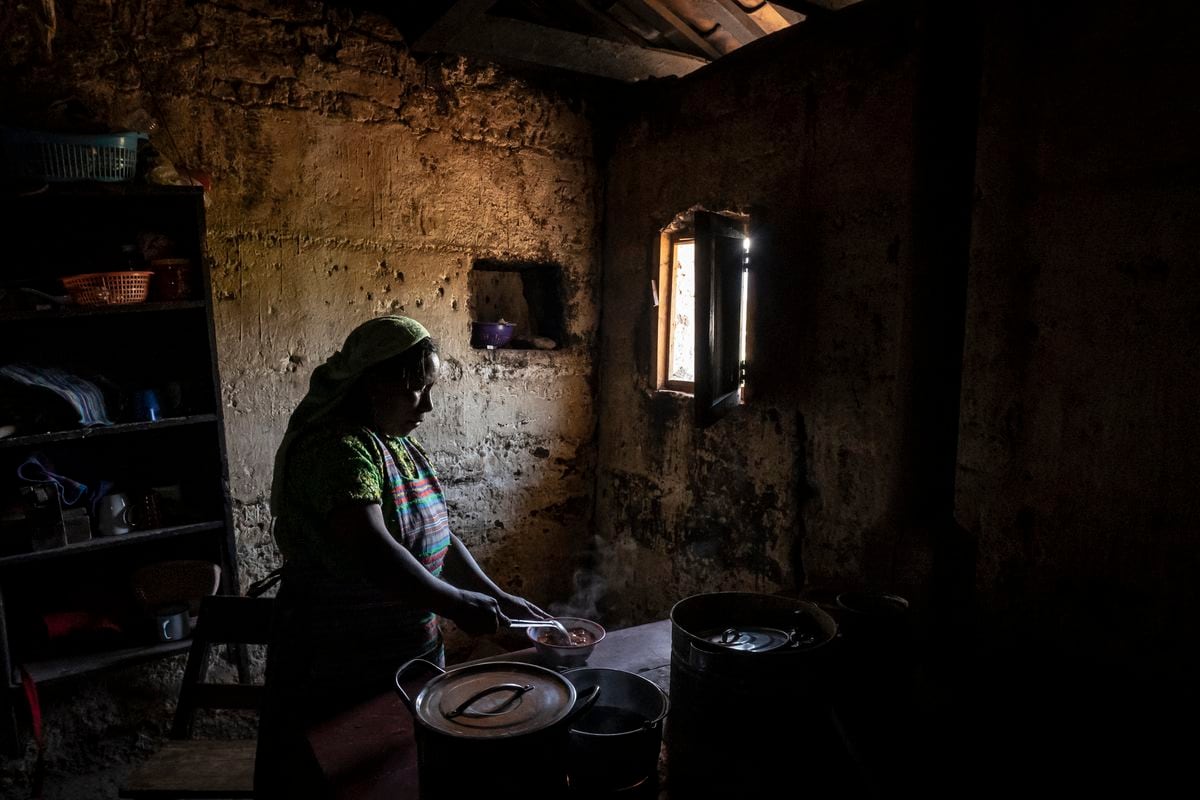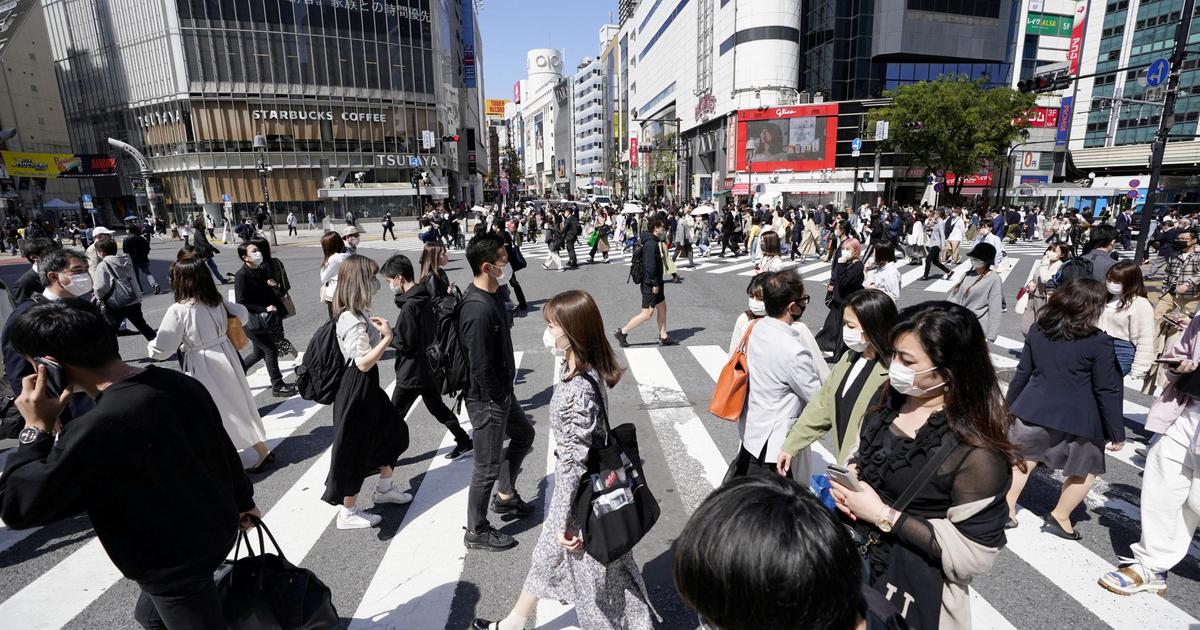Could covid-19 become an endemic disease?
2:18
(CNN) --
Conditions appear to be improving as the US enters the third year of the Covid-19 pandemic.
Vaccines maintain their effects against severe disease from the virus, preventing more people from dying or being hospitalized.
There is increasing access to testing and treatment.
The figures for cases, hospitalizations and deaths are heading in the right direction.
However, if there is one thing that living in a world with Covid-19 has taught us, it is that the virus can surprise even the most intelligent public health experts.
In that sense, the world is certainly not out of the woods yet.
A fourth dose of the covid-19 vaccine will be needed, says the CEO of Pfizer, but the company is working on a version against all variants
A new variant could easily be developed and circumvent the protection of current treatments and vaccines against covid-19.
Which would bring us back to the life we had in 2020. Precisely, that makes it difficult to predict what will happen next week... let alone in a few months.
But based on what they see now, some experts shared what they think could happen in the next year of the pandemic.
Ultimately, each of these predictions tacitly depends on the possibility of a variant.
What will spring and summer be like?
What is prolonged covid and how do you live with it?
4:15
The numbers in the US look good.
Only 2% of the population –– or about 7 million people–– live in a county with a "high" community level of COVID-19, according to data from the Centers for Disease Control and Prevention ( CDC).
The rest are at "low" or "medium" community levels.
And, therefore, they are areas where the use of masks is not recommended or where immunosuppressed people should take extreme precautions.
advertising
In fact, over the next four weeks, the CDC projects that hospitalizations and deaths will decline.
A trend that could continue, especially as the weather improves and people start going out into open spaces, where they are less likely to catch covid-19.
These positive trends could mean that the US will have a normal spring and summer… or at least close to normal (depending on the possibility of a variant, of course).
He had a near death experience from covid-19.
But it wasn't a vision from beyond that changed her
"I'm very optimistic," said Dr. William Lang, medical director of the WorldClinic and a former deputy White House physician.
"I'm optimistic about the way things are projected so everyone can get back to their normal activities over the summer."
But normal doesn't mean returning to life before 2020. "Fewer" cases still mean tens of thousands of Americans are getting it.
And as of this Friday, even with deaths at the lowest level in three months, there were an average of 1,200 Americans dying from Covid-19 each day, according to Johns Hopkins University.
"Everyone has to recognize, relatively speaking, it's still very early days on this, right? This is not going to go away," said Dr. Abraar Karan, a researcher in the Division of Infectious Diseases and Geographic Medicine at the University from Stanford.
Are we facing the end of the covid-19 pandemic?
5:38
If the pandemic progresses to a more endemic phase, which means that enough people have immune protection from natural contagion and vaccination, this does not mean that we can forget about masks.
Rather it implies that the spread of covid-19 will slow down.
And, as a consequence, it will produce fewer deaths and hospitalizations.
But, this endemic status is not guaranteed.
One indicator to watch is the upward trend in cases and hospitalizations in Britain.
Karan believes that this happens mainly due to decreased immunity.
And, in that sense, the US could have similar tendencies.
Could "zero covid-19" policies work in the fight against the pandemic?
"With the combination of our decreased immunity and virus mutation, future surges are unpredictable," Karan said.
What will happen to fall and winter?
Given the unpredictability of the coronavirus, it's hard to know what will happen for the fall and winter, explained David Montefiori, a virologist at Duke University Medical Center.
“This virus has really taken us by surprise several times,” Montefiori said.
Some experts say the coronavirus could ultimately become seasonal like the flu.
But Montefiori doesn't think we're at that point yet.
Is it time to lift restrictions due to covid-19?
1:41
"Thinking of this as a seasonal flu-like virus... hasn't been the case so far. The variants seem to be periodic," he said.
"About every four or six months we have a new variant."
He is optimistic, however, because Americans have broad-based immunity from vaccination, infection, or a combination of the two.
“We may have another surge later this year, even early summer.
But if it doesn't, that means the immunity we've developed as a population is doing a good job."
Of course, the concern is that a variant will emerge that circumvents the protection of vaccines.
"The good news is that vaccines can be quickly modified," Montefiori said.
Safety tips against covid-19 if you consider returning to face-to-face work
With increased access to screening and treatment, many experts believe the US is better prepared now to deal with a fall or winter surge in cases than it was last year.
Some say Covid-19 infections could spike for a time when colder weather forces people to stay indoors and relax with precautions.
"Ultimately, the virus will have a hard time in our population, but that will take a long time," said Dr. John Swartzberg, a clinical professor emeritus at the UC Berkeley School of Public Health.
"I think the true long-term vision is that we will have endemicity. Eradication is not possible," he added.
Much depends on how quickly the planet can be vaccinated, Swartzberg said.
The more people who get vaccinated, the fewer individuals can serve as hosts for the virus to mutate and produce –– yes, you guessed it–– new variants.
Has the pandemic changed love relationships?
1:34
Less than 10% of the population in low-income countries have received vaccinations, according to the International Rescue Committee.
The United States and other countries have pledged to ship more vaccine abroad this year.
What to expect from adult vaccines at this time of the pandemic?
A fourth dose of the covid-19 vaccine may be needed this year.
In fact, the CDC already recommends that those with weakened immune systems get it.
In addition, public health officials in the US have said they are carefully monitoring whether and when a fourth dose would be needed for the general population, with a possible date set in the fall.
Vaccines still seem to protect people from needing hospitalization and dying, especially if they have a booster.
But, the protection might decrease over time and is slightly less effective against the omicron variant.
Currently authorized booster doses were manufactured to protect against the original coronavirus from late 2019.
A new vaccine is 100% effective against severe covid-19, say Sanofi and GlaxoSmithKline
Now, upcoming vaccines could be tailored specifically to the variant -- or variants -- that are in circulation, Moderna's chief medical officer, Dr. Paul Burton, said Wednesday.
They could even be a combined booster.
Moderna and Pfizer have confirmed that they are testing omicron-focused vaccines.
Pfizer CEO Albert Bourla said his company would soon submit data on another vaccine dose for federal health officials to review.
A fourth vaccine against covid-19 in the fall?
This is what US officials are looking at.
"I think our data suggests that it's protecting, it's dramatically improving protection, the fourth dose compared to the third, for Omicron after some time. Let's say after three to six months," Bourla said in a live discussion Thursday. with
The Washington Post.
Globally, there are another 234 COVID-19 vaccines in development.
Perhaps the most advanced in the process is that of Novavax.
It is in the midst of regulatory proceedings with the US Food and Drug Administration (FDA) and could receive approval this year.
What's next for vaccines for children?
Pfizer and Moderna are expected to report the results of their clinical trials with children under 5 in the coming weeks.
Pandemic school closures impact children's skills 0:49
Pfizer is also developing clinical trials for a third dose of the vaccine in children ages 5 to 11.
Children 12 years and older can already receive the booster, as can children 5 years and older who are immunosuppressed.
For the little ones, scientists believe a vaccine may not be licensed until April.
Pfizer originally said it believed it might have one available as soon as this year.
But, he added a third dose of the vaccine to his tests to see if it is more effective.
Vaccines haven't come fast enough for some parents.
During the surge in cases of the omicron variant, the largest increase in hospitalization rates was among children 4 years of age and younger, according to the CDC.
The authorization of the covid-19 vaccine for the little ones is delayed due to the postponement of the FDA meeting
However, many more children for whom the vaccines are already licensed are still not receiving them.
They are the age group with the lowest vaccination rate in the United States.
"There's still not as much acceptance of vaccines as we'd like," said Dr. Shira Gertz, a pediatric critical care physician and researcher at Cooperman Barnabas Medical Center in New Jersey.
"Getting a vaccine is much better than getting the disease."
The politics behind that can be complicated.
But schools could require children to get vaccinated against Covid-19 before they return to school in the fall, as they do for other diseases.
Currently, only a handful of schools implement it, such as those in Los Angeles, the city of Washington and New Orleans, according to the Center for the Reinvention of Public Education.
What's next for treatments and screenings in the pandemic?
What treatments will no longer be used against the omicron variant?
0:47
There are 23 antivirals and 63 other treatments in late-stage clinical trials, according to Bio, a pharmaceutical industry association.
Although Pfizer's COVID-19 vaccine is licensed for children 5 years and older, treatments for younger children remain limited.
The company is in a phase 2 and 3 clinical trial of its antiviral treatment Paxlovid in children ages 6 to 17.
What you should know about Paxlovid, the first oral antiviral treatment for covid-19
Now, for treatments to work effectively, people need to get them quickly.
A new Biden administration test-and-treat program allows pharmacies with clinics to test people for Covid-19 and immediately prescribe medication if they test positive.
That program will play an even more vital role if cases spike again.
What's next for the masks?
Hawaii is the latest state in the country to suspend its indoor mask mandate: It will end on March 25.
On Thursday, the federal requirement that people wear masks on public transportation, including airplanes, was extended for another 30 days.
CDC data will give flexibility to the use of masks 1:09
People may be fed up with masks -- and their use has become a hot political issue -- but broader mandates making them mandatory may always come back if caseloads rise and hospitals fill up.
The use of masks is enormously effective.
An investigation from January 2021, which analyzed several studies on the use of masks in adults, found that this element significantly reduced the transmission of the virus.
And a study from the National Institutes of Health, published Thursday, found that during the rise of the delta variant, schools that mandated the use of masks had 72% fewer cases of transmission within the institution than those with optional policies.
First on CNN: Biden administration to extend travel mask mandate for another month
"I think readers need to remember that even if we say 'this is what we're doing now,' we reserve the right to change things as needed," said Dr. Sharon Nachman, chief of the Division of Pediatric Infectious Diseases at Stony Brook University in New York.
Americans must be flexible and adapt to the threat around them, she insisted.
And the money for all these pandemic mitigation measures?
The money to pay for screening tests, treatments, and vaccine research won't last forever.
Also, there is no more funding in the recent federal spending bill.
$15.6 billion earmarked for pandemic preparedness was eliminated.
And that was only half of what the Biden administration had asked for.
The spending bill increases the CDC's budget by $582 million.
But, put aside the pandemic waivers that gave schools additional federal funding to deal with Covid-19 outbreaks.
Study finds even mild cases of covid-19 produce brain changes
The money that has bolstered many rural "safety net" hospitals will soon expire.
Safety net hospitals are those that, by legal obligation or mission, provide medical care regardless of someone's ability to pay or insurance status.
So more rural hospitals could close this year.
In addition, the US has already lost a record number of them during the pandemic.
It is a tenuous time.
Dr. Marcus Plescia, chief medical officer for the Association of State and Territorial Health Officials, said supplies of therapeutics, tests and vaccines are finally at a level where they meet demand.
"If there are issues with funding and any of those areas of progress start to slip, we're going to go back to where we're just catching up so far and we don't have enough," he warned.
OPINION |
These symptoms of covid-19 raise new questions
On Wednesday, House Appropriations Committee Chairwoman Rosa DeLauro, a Democrat, introduced a separate, companion bill to handle the pandemic at home and around the world.
But, it is unlikely to be approved.
What about the long-term consequences of covid-19?
Scientists continue to evaluate those suffering from prolonged covid-19 to try to understand the symptoms and treatments of this condition.
Up to 30% of people who test positive for the virus may have long-term symptoms such as fatigue, shortness of breath, joint and chest pain, and heart problems, studies show.
Mental fog, consequence of covid-19 according to study 1:56
Mental health has been an ongoing challenge for adults and children during the pandemic.
Four in 10 adults reported symptoms of anxiety or depression during the pandemic, up from 1 in 10 before the pandemic.
In communities of color, mental health issues are disproportionately underserved.
For children, the Biden administration's national mental health strategy, which was announced this month, will attempt to address the shortage of some providers and programs to meet their needs.
More than 206,800 children in the US have lost their primary caregiver to COVID-19.
And advocates are also pushing for programs to address their needs.
Will this ever end?
People need to be flexible and not let their guard down too soon, experts warn.
"When places relax measures at the wrong time, transmission increases dangerously and we lose more lives," Pan American Health Organization director Dr. Carissa F. Etienne said Wednesday.
In that sense, she urged countries to base their decisions on risk assessments and health data, in addition to tightening public health guidelines if cases start to skyrocket.
The WHO affirms that the covid-19 pandemic "is far from over"
In short, Lang points out: Covid-19 is here to stay.
But, the pandemic part could be in our rearview mirror, or at least move into a more manageable stage, if people get vaccinated and get boosters.
“The covid-19 vaccine is much more effective at preventing deaths than the flu vaccine,” he said.
"So, you know, we can really combat this if people get vaccinated and get their boosters."
Gertz also recommends that people pay attention to the numbers around them.
“We have to continue to be diligent and aware of what is going on in our immediate environment,” he said.
That doesn't mean people will wear masks forever, but they should wear them when necessary and take preventive measures like washing their hands.
"Actually, we should always wash our hands," he insisted.
Covid-19 Pandemic




/cloudfront-eu-central-1.images.arcpublishing.com/prisa/FWGZ5IUZXVG3TDWBHUTF7BC35M.JPG)




